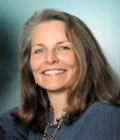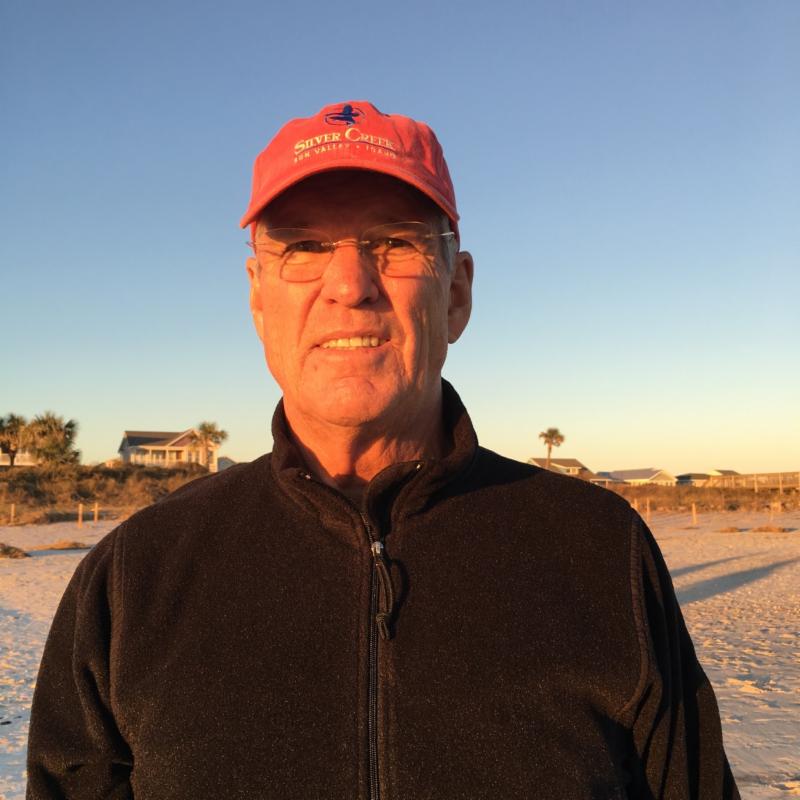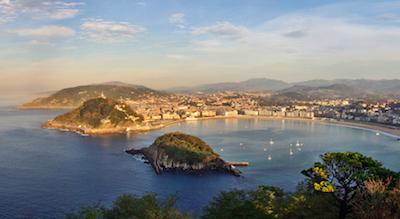 |
 |
 We hope that 2017 holds good things in store for you: time with friends and family, good health, and opportunities to learn and engage with the world around us.
Recent studies show that challenging yourself to learn new material in new ways increases your brain fitness,
1 and that connecting to others is beneficial for our overall health.
2 That's right: OLLI classes are good for you!
But all jokes aside, we at OLLI are honored to be part of a strong community and proud to have top-notch faculty offering insightful courses. Thanks to you, our members, our tenth year is proving to be our strongest yet -- and we are grateful for that!
Susan Hoffman
Director
1. "
How to Become a Superager" (New York Times)
|
|
 |
|
Sign Up for Winter Courses
|
 |
Our Winter term starts January 23, 2017. Browse course listings and sign up at
olli.berkeley.edu/courses
, or call 510.642.9934 to register by phone.
Our Berkeley Info Session takes place next week:
Tuesday, January 10
10:00 to noon (doors open at 9:30)
Freight and Salvage, 2020 Addison Street
|
|
 |
|
Faculty Profile: Alexandra Amati-Camperi
|
 |
Jennifer Monahan, OLLI Staff
 Dr. Alexandra Amati-Camperi teaches at the University of San Francisco, where she founded the music program in 2000. She also lectures for the San Francisco Symphony, SF Opera, and other groups. Her course "The Concerto: Its History and Importance" meets Wednesday mornings starting January 25; Part 2 of the course is slated for Spring. Dr. Alexandra Amati-Camperi teaches at the University of San Francisco, where she founded the music program in 2000. She also lectures for the San Francisco Symphony, SF Opera, and other groups. Her course "The Concerto: Its History and Importance" meets Wednesday mornings starting January 25; Part 2 of the course is slated for Spring.
You did your undergraduate work in Philology and Slavic Studies at the University of Pisa, then came to the United States for a Ph.D. in musicology from Harvard. What led you to focus on music, and what brought you to the United States?
When I finished high school, I initially wanted to study math, but I quickly discovered that my university program didn't offer the type of applied math that would have interested me. My other love was Slavic languages, so I quickly switched programs and began studying Russian, Polish, Czech, Bulgarian, etc. with a focus on philology, Church Slavonic, and the history and evolution of these languages through written texts. Meanwhile I was also at the conservatory studying piano and composition.
When I finished my undergraduate work, I wanted to combine those two passions and apply philology to music. Italy didn't offer the types of musicology programs that interested me, so I applied to graduate programs in the United States.
I chose American graduate programs in part because my parents were familiar with them since they had gone through them (in fact I was born in Boston, though I grew up in Naples). My parents had fled Argentina to escape the dictatorship: when I was born my father was a postdoc at MIT while my mother pursued her Psychiatry residency in one of the Harvard hospitals. Everyone in my family speaks multiple languages; it's a common part of the Jewish diaspora.
Your upcoming courses on the concerto look at the concerto both musically and historically. What sets the concerto apart from other musical genres, and why are its cultural and social aspects important?
The concerto combines a large group (the orchestra) with a small group or individual. Using the orchestra as a symbol for society is a very old motif; the concerto can portray the relationship of the individual with the community as collaborative, competitive, or antagonistic.
The concerto evolves over its history. In the Baroque period, we see a more varied family of genres: vocal pieces, a small orchestra with a larger orchestra, etc. In the Classical period it crystallizes into the form we know now: a piano or violin (or, more rarely, another solo instrument) plus an orchestra, with the individual -- the virtuoso -- taking center stage. In the Romantic and Post-Romantic periods, the concerto morphs into a vehicle for emotions that can be either individual or communal.
One of your research interests is a feminist critique of opera. Could you tell us more about that project?
I wrote a book (currently under review) about how the way women are portrayed in opera reflects the position of women in that society. Since there are so many facets to this question, I use the myth of Orpheus as a thread through historical eras. In Monteverdi's
Orfeo
-- from 17th-century Venice -- the death of the heroine is embedded in her voice (in her musical style) from the beginning. By the second half of the 18th century -- specifically, in Gluck's
Orfeo ed Euridice
-- women are portrayed in ways that are discordant with the stories the operas are based upon. I discovered that Freemasons were involved in the creation of some of these operas; the Freemasons tended to be (and still are) suspicious of women.
Many of your projects use music as a lens into larger historical and cultural questions. What does music have to teach us about the history and culture of a given period?
A lot! USF's performing arts major is actually Performing Arts and Social Justice, so our whole curriculum approaches the performing arts through a political and cultural lens. Why is medieval music almost always religious? Because the Catholic Church not only had wealth and power, they also controlled a high percentage of manuscript production: parchment, copyists, etc. Why is there so little music from Renaissance women? They weren't allowed to. Why do we know so little about Clara Schumann? Why did Felix Mendelssohn take credit for his sister Fanny's compositions? Because of the circumscribed social roles available to women at that time. Same here and more recently -- for example New England composer Amy Beach wasn't allowed to perform after she married, though fortunately she outlived her husband enough to publish a lot of great music. Music reflects and gives voice to broader social themes, and it is very much worth studying in that context.
In addition to your work at the University of San Francisco, you also give lectures for the San Francisco Symphony and SF Opera. What do you most enjoy about working with lifelong learners?
Everyone in the room is passionate about learning, and it's so rewarding to share my passion and see it spark something in the audience. I want to learn from my students as much as they want to learn from me, so these courses are very fulfilling for me as well.
|
|
 |
|
Volunteer Profile: John Daws
|
 |
Gale Lederer, OLLI Volunteer
 "When I was in college, I had to focus so much on getting through that I never took the courses I wanted," says John Daws, this month's featured volunteer. "But now, thanks to OLLI, I can follow up on my interests-and find new ones." John has particularly enjoyed Pierluigi Serraino's courses on architecture. "He has a deep knowledge base," John tells us, "and he's a real educator. He makes the class come alive." John has also felt his world expand as a result of Tamim Ansary's class on Afghanistan and Alex Saragoza's classes on Cuba and Spain. He especially appreciates courses that reach beyond the conventional classroom. For instance, the course on the prison system taught by Claudia Belshaw, San Quentin's former associate warden, actually visited the prison, and Sylvia Walter's printmaking class explored a different local gallery or press during each class meeting. He likes OLLI's intellectual depth and variety in terms of both subject matter and class size. "And," he adds, "there are no grades; just like-minded people coming together to learn." "When I was in college, I had to focus so much on getting through that I never took the courses I wanted," says John Daws, this month's featured volunteer. "But now, thanks to OLLI, I can follow up on my interests-and find new ones." John has particularly enjoyed Pierluigi Serraino's courses on architecture. "He has a deep knowledge base," John tells us, "and he's a real educator. He makes the class come alive." John has also felt his world expand as a result of Tamim Ansary's class on Afghanistan and Alex Saragoza's classes on Cuba and Spain. He especially appreciates courses that reach beyond the conventional classroom. For instance, the course on the prison system taught by Claudia Belshaw, San Quentin's former associate warden, actually visited the prison, and Sylvia Walter's printmaking class explored a different local gallery or press during each class meeting. He likes OLLI's intellectual depth and variety in terms of both subject matter and class size. "And," he adds, "there are no grades; just like-minded people coming together to learn."
John, the son of a Minnesota farming family, grew up in Pasadena and after college moved to northern California, raising his family in Orinda and commuting to Silicon Valley where he primarily worked as a chief financial officer. He continues to work part-time for a consulting firm in Woodside. John volunteers for both the Curriculum Committee and the Lafayette Planning Committee. "Culture doesn't stop at the tunnel," he reminds us. However, he feels that there are slight differences between the two groups. "The in-depth, narrow-focus classes do well at Berkeley," he says, "but Lafayette seems to prefer more of survey-based approach." John sits in on each Lafayette class for one session. He's particularly interested in the newer classes and focuses primarily on how well the instructor relates to the students. "I volunteer at OLLI because I want to give back to an institution that has given so much to me," he says. It is because of committed volunteers like John Daws that our OLLI community is growing and thriving so energetically.
|
|
 |
 |
 Culture and Culinary Traditions of Northern Spain Culture and Culinary Traditions of Northern Spain
June 1-10, 2017
In collaboration with Cal Discoveries
Explore monuments, learn about regional history, and sample local cuisines and wines as you make your way from Madrid to San Sebastian. Led by UC Berkeley professor Alex Saragoza, this tour will be a perfect companion to Professor Saragoza's upcoming Winter course on Northern Spain. View the tour brochure.
|

|
 |
Tamim Ansary's newest memoir Road Trips has been published. Join him for a reading and discussion on Sunday, January 15 from 2:00 to 4:00 p.m. at Bird & Beckett Bookstore (653 Chenery St, San Francisco)
|
|
 |
 |
The Lafayette Library looks at the power of storytelling with two documentaries: A New Color, The Art of Being Edythe Boone, a film by Mo Morris, on Thursday, January 12, 2017 at 7:00 p.m., and Mothering Inside, a film by Brian Lindstrom, on Thursday, February 2, 2017 at 7:00 p.m
. Each film screening includes a Q&A with the director and subjects from the film. Special guest, author Cheryl Strayed, joins filmmaker Brian Lindstrom for a conversation on storytelling.
Special Offer
:
OLLI members receive $5 LLLCF discount on tickets. Call (925)283.6513 x102 to purchase.
Berkeley Arts and Letters has a number of author conversations scheduled:
- Thursday, January 19: Michael Eric Dyson presents Tears We Cannot Stop.
- Tuesday, January 24: Ayelet Waldman presents A Really Good Day.
- Thursday, March 16: Rebecca Solnit presents The Mother of All Questions.
- Tuesday, March 21: Camille Paglia presents Free Women, Free Men.
More information is available at
berkeleyarts.org.
OLLI members qualify for a student discount when available: just select the "student with ID" option when you purchase your ticket online, then present your OLLI membership card at check-in.
|
|
 |
 |
Saha Berkeley
2451 Shattuck Avenue at Haste
510-900-2457
sahaberkeley.com
This new place is located a little far from the OLLI Berkeley classrooms, but it is worth the journey. It has just opened for lunch during the week and brunch on the weekends. The food is Modern Mediterranean with many vegetarian, gluten free, and vegan choices. Everything is delicious and moderately priced. The atmosphere is clean and modern, and it's a great place for a special lunch. The original Saha was in San Francisco but the charming and friendly owner decided to relocate to Berkeley. It's definitely worth a try.
Lucille Poskanzer
January 2017
|
 |
|
|
 |
|